Egypt is a land of ancient wonders, vibrant culture, and rich traditions, making it a unique and unforgettable destination for first-time travelers. While the country is famous for its pyramids, temples, and the mighty Nile River, understanding Egyptian culture is key to having a respectful and rewarding experience. Here’s a guide to navigating Egyptian culture, offering tips on everything from local customs to communication styles, helping you make the most of your first trip.
- Egypt Tour Magic
- Egypt Tour Packages
- Excursions in Egypt
- Cairo Tours and Excursions
- Hurghada Tours and Excursions
- Soma Bay Tours and Excursions
- Makadi Bay Tours and Excursions
- Sahl Hasheesh Tours and Excursions
- El Gouna Tours and Excursions
- Marsa Alam Tours and Excursions
- Port Ghalib Tours and Excursions
- El Quseir Tours and Excursions
- Dendera and Abydos Day Tours
- Aswan Tours and Excursions
- Luxor Tours and Excursions
- Alexandria Tours and Excursions
- Sharm El Sheikh Tours and Excursions
- Top Rated Tours in 2025
- Optional Excursions in Egypt
- Private Transfer
- Blogs About egypt
- Ancient Egypt
- What You Need To know Before Your First Trip To Egypt
- Best Places to Visit in Egypt 2025
- Top Attractions in Red Sea Resorts 2025
- Top 10 Tourist Activities in Egypt
- Top 30 Activities You Can’t Miss in Egypt
- The Guide to Guided Tours in Egypt
- Egypt’s Ancient and Modern History
- The Nile River
- The Deserts of Egypt
- Historical Sites in Egypt
- Cairo
- Alexandria
- Luxor
- Aswan
- The Red Sea
- Dendera Temple
- El Fayoum Oasis
- Bahariya Oasis
- Siwa Oasis
- Al Alamein
- Marsa Matruh
- Ancient Egyptian gods
- famous Egyptian dishes
- UNESCO World Heritage sites
- About Us
- Why Egypt Tour Magic
- Egypt Tour Magic
- Egypt Tour Packages
- Excursions in Egypt
- Cairo Tours and Excursions
- Hurghada Tours and Excursions
- Soma Bay Tours and Excursions
- Makadi Bay Tours and Excursions
- Sahl Hasheesh Tours and Excursions
- El Gouna Tours and Excursions
- Marsa Alam Tours and Excursions
- Port Ghalib Tours and Excursions
- El Quseir Tours and Excursions
- Dendera and Abydos Day Tours
- Aswan Tours and Excursions
- Luxor Tours and Excursions
- Alexandria Tours and Excursions
- Sharm El Sheikh Tours and Excursions
- Top Rated Tours in 2025
- Optional Excursions in Egypt
- Private Transfer
- Blogs About egypt
- Ancient Egypt
- What You Need To know Before Your First Trip To Egypt
- Best Places to Visit in Egypt 2025
- Top Attractions in Red Sea Resorts 2025
- Top 10 Tourist Activities in Egypt
- Top 30 Activities You Can’t Miss in Egypt
- The Guide to Guided Tours in Egypt
- Egypt’s Ancient and Modern History
- The Nile River
- The Deserts of Egypt
- Historical Sites in Egypt
- Cairo
- Alexandria
- Luxor
- Aswan
- The Red Sea
- Dendera Temple
- El Fayoum Oasis
- Bahariya Oasis
- Siwa Oasis
- Al Alamein
- Marsa Matruh
- Ancient Egyptian gods
- famous Egyptian dishes
- UNESCO World Heritage sites
- About Us
- Why Egypt Tour Magic
Navigating Egyptian Culture: A Guide for First-Time Travelers
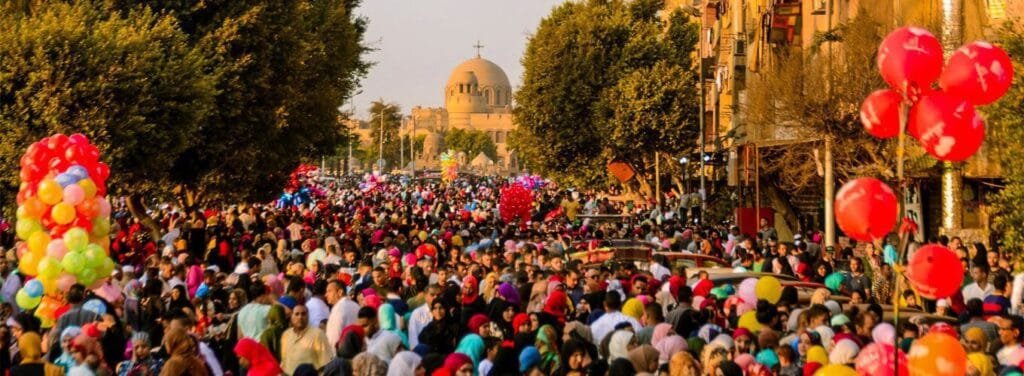
1. Respect for Religion and Traditions
Egypt is a predominantly Muslim country, and Islam plays a central role in the lives of its people. It’s important for first-time travelers to understand the significance of religion in daily Egyptian life. One of the first things to keep in mind is modesty in dress. Women, especially when visiting mosques or religious sites, should cover their shoulders, arms, and legs. Men should avoid wearing shorts in these areas as a sign of respect. While more liberal dress codes are accepted in tourist spots, modesty remains the general cultural standard throughout the country. Another key consideration is the observance of Ramadan, the Islamic holy month of fasting. During Ramadan, Muslims fast from dawn until sunset, and it is respectful to avoid eating or drinking in public during daylight hours. You’ll notice a more subdued atmosphere during the day, as many restaurants and cafes close or operate with limited hours. However, after sunset, the streets come alive with celebrations, and the festive atmosphere is contagious. Iftar, the evening meal, is a time for families to gather and break their fast together, and you might even be invited to join in if you’re lucky! While Egypt is predominantly Muslim, it also has a small Christian minority, with the Coptic Orthodox Church playing a significant role in Egyptian culture. The Coptic Christmas (celebrated on January 7th) is an important holiday, and it’s common to see churches adorned with decorations during the season.
Travel Tip: Respect for local customs can go a long way in building positive connections with the people you meet. If you’re unsure of local norms, observe how Egyptians behave and follow their lead.
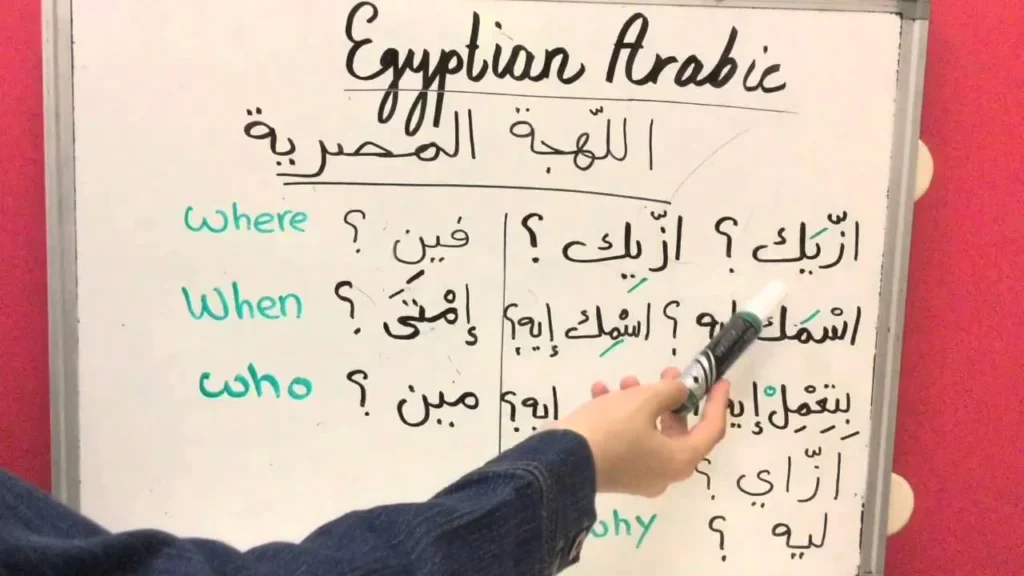
2. The Language: Arabic and English
When traveling to Egypt, one of the first cultural differences you may encounter is the language. The official language of Egypt is Arabic, specifically the Egyptian Arabic dialect, which is widely spoken throughout the country. However, Modern Standard Arabic is the form used in formal settings, newspapers, and official documents. Though many Egyptians in major cities and tourist hotspots speak basic English, it’s still a good idea to learn a few key phrases in Arabic to make your experience more rewarding. While in larger cities like Cairo, Luxor, and Alexandria, you will find that many Egyptians, especially those working in the tourism industry, speak English fluently, communication in more remote or rural areas can be a bit more challenging. Knowing a few words in Arabic can help you navigate these situations and show respect for local culture. Simple greetings such as "As-salamu alaykum" (Peace be upon you) and "Shukran" (Thank you) will go a long way in fostering goodwill. Learning a few essential phrases can also enhance your interactions with local vendors in markets or shops. Egyptians often appreciate when visitors make an effort to speak their language, even if it’s just a basic hello or thank you. In return, locals are often friendly, accommodating, and will do their best to assist you with directions or recommendations.
What to Expect: While English is commonly spoken in tourist areas, expect some communication barriers in less-visited regions. It’s helpful to download a translation app or keep a phrasebook on hand to help with language gaps. The more Arabic you can learn, the more rewarding your cultural experience will be.
Travel Tip: Simple phrases like “Min fadlak” (Please) and “Ayna al-hammam?” (Where is the bathroom?) can come in handy when navigating day-to-day situations, especially in less touristy areas.
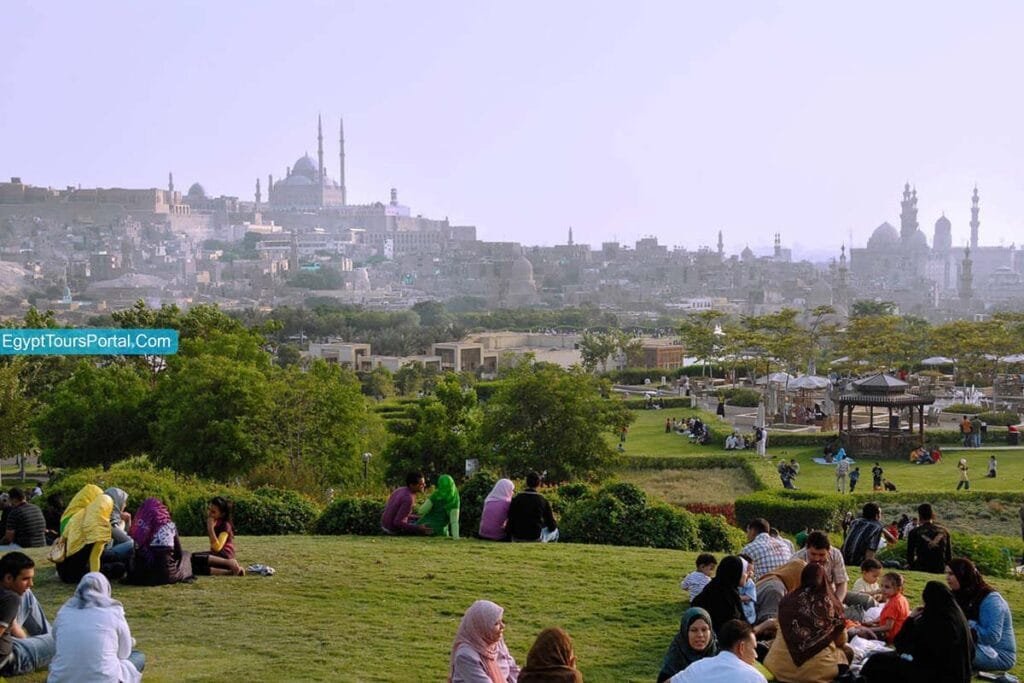
3. Egyptian Hospitality: The Heart of Local Culture
One of the most remarkable aspects of Egyptian culture is the unmatched hospitality that locals offer to visitors. Egypt has a long tradition of welcoming strangers with open arms, often going out of their way to make travelers feel comfortable and at home. In many ways, hospitality is woven into the very fabric of Egyptian society, with friends, family, and even strangers extending generous gestures to show kindness and generosity. It’s not uncommon for locals to invite travelers into their homes for a cup of tea or to share a meal. Offering guests food and drinks is seen as an essential part of Egyptian culture. If you’re invited into a home, it's considered polite to accept, as turning down an invitation may unintentionally offend your hosts. As a guest, you may be offered mint tea or coffee, both of which are common beverages in Egyptian homes. While it’s tempting to say "no" out of politeness, try to accept the offer to respect the cultural norm. When visiting markets, shops, or even local cafes, Egyptians may offer you a small treat or drink. Whether it's fresh fruit or a cup of karkadeh (hibiscus tea), these offers are a sign of goodwill. Similarly, if you happen to be in a smaller, more remote village, expect a warm reception from locals, who might even invite you to participate in traditional celebrations or family gatherings.
What to Expect: Hospitality often comes in the form of food, drinks, and conversations. Locals might engage in long discussions with you, asking about your culture, your life back home, and your thoughts on Egypt. Be prepared for these interactions and take the time to enjoy the opportunity to connect.
Travel Tip: When offered hospitality, always show gratitude and acknowledge the gesture with a heartfelt “Shukran” (Thank you). Consider bringing a small gift, such as a box of chocolates or souvenirs from your home country, to show appreciation for their kindness.
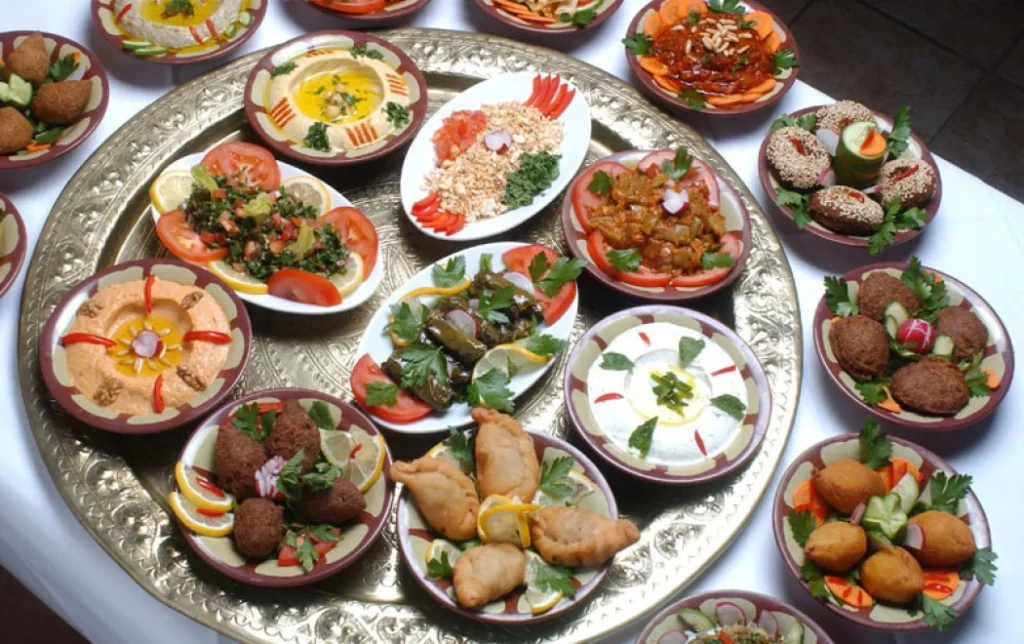
4. Egyptian Cuisine: A Culinary Adventure
One of the most exciting aspects of any trip to Egypt is the chance to explore Egyptian cuisine, which is a delicious blend of flavors, spices, and fresh ingredients. Traditional Egyptian food is hearty, flavorful, and often eaten in a communal setting, where family and friends gather to enjoy a meal together. Egyptian cuisine is influenced by Middle Eastern and Mediterranean cooking styles, but it has distinct flavors and preparations that make it unique. Popular dishes include koshari, a mix of rice, pasta, lentils, chickpeas, and a spicy tomato sauce; ful medames, a dish made from fava beans cooked in olive oil and spices; and moussaka, a baked dish of eggplant, tomatoes, and ground meat. Another popular item is falafel, fried patties made of chickpeas, which are typically served in pita bread with tahini sauce, salad, and pickles. Egyptians also enjoy an array of street foods, including shawarma (grilled meat wrapped in flatbread), sambousak (savory pastries filled with cheese or meat), and ta'ameya, a form of falafel made with fava beans instead of chickpeas. Street vendors are often found on busy streets and are a great way to sample authentic Egyptian flavors at an affordable price. For dessert, don’t miss trying basbousa, a semolina cake soaked in syrup, or konafa, a sweet pastry filled with cheese and syrup, often served during special occasions or holidays.
What to Expect: Egyptian meals are often served in large portions, designed to be shared among friends and family. You’ll also notice that food is often accompanied by fresh bread, which is an essential part of the meal.
Travel Tip: To truly immerse yourself in Egyptian food culture, make sure to visit local markets and food stalls, where you can sample freshly made, traditional dishes. Don’t be afraid to try street food—it’s often some of the most authentic and flavorful food you’ll experience during your trip!
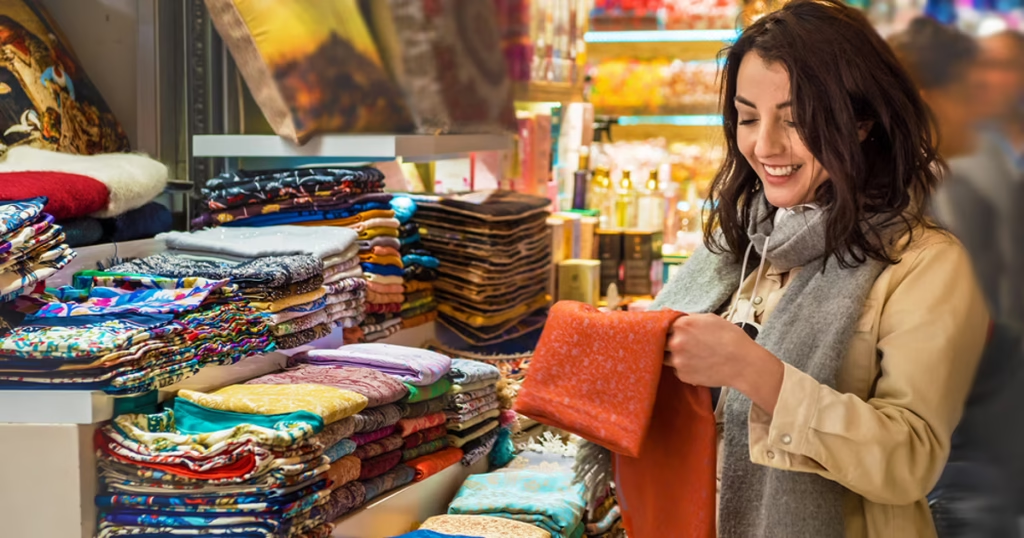
5. Bargaining and Shopping: A Cultural Norm
In Egypt, bargaining is not just a way of life, it’s an art form. Whether you’re shopping for souvenirs in the bustling markets of Cairo or buying spices in Luxor, haggling over prices is expected and even encouraged. The ability to negotiate prices is an integral part of Egyptian shopping culture and is seen as a way to build rapport with the vendor. It’s common to start by offering a price that is much lower than the initial asking price, and through friendly negotiation, you’ll often arrive at a price that both you and the vendor are satisfied with.
What to Expect: You’ll find markets like Khan El Khalili Bazaar in Cairo to be full of vendors offering everything from handcrafted jewelry and papyrus paintings to scarves and spices. Vendors may approach you eagerly, hoping to make a sale, but don’t be intimidated. Always greet them with a friendly smile and engage in light conversation before starting the bargaining process.
It’s important to note that bargaining should be done in a polite and respectful manner. Egyptian vendors value the relationship built during negotiation, and keeping the conversation friendly and light-hearted will often lead to a better deal for both sides. If you’re not comfortable bargaining, don’t worry—prices in fixed-price shops are usually fair, and you won’t be pressured into negotiating.
Travel Tip: Be prepared to walk away if the price doesn’t meet your expectations. Vendors will often call you back with a better offer once they see you’re serious about not paying full price. And remember, patience is key—never rush the process.
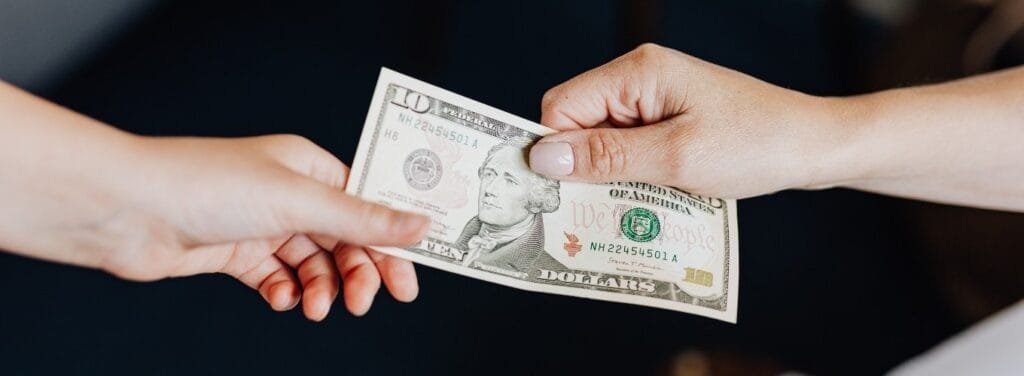
6. Tipping: A Cultural Practice
Tipping, or baksheesh, is an ingrained part of Egyptian culture. In Egypt, tipping is not only appreciated but expected in many situations. While it might feel unfamiliar to travelers from countries where tips are voluntary, in Egypt, it’s considered a way to show appreciation for services rendered. Tipping is common in hotels, restaurants, taxis, and even in places like museums and archaeological sites.
What to Expect: In restaurants, it’s customary to leave a tip of around 10% of the total bill if service charge isn’t already included. For taxi rides, you might round up the fare or give an extra small amount depending on the distance traveled. In hotels, bellboys or housekeeping staff may expect a tip of 10-20 Egyptian pounds for their services. Additionally, many museums and historical sites have local guides or attendants who may also expect tips for helping you with directions or providing information.
Tipping doesn’t always have to be large amounts—small gestures are enough to show gratitude for the services. Keep in mind that in some cases, particularly with local service workers, tips make up a significant portion of their income, so it’s often very much appreciated.
In more remote or rural areas, tipping can be even more important as incomes can be lower. However, while tipping is customary, Egyptians are always polite and will never make you feel obligated to give. It’s always best to be generous when you can, but don’t feel pressured to tip beyond your comfort level.
Travel Tip: Carry small denominations of Egyptian pounds (around 5-10 EGP notes) to make tipping easier, especially in markets, for street vendors, or for small services. Always remember, a little extra goes a long way in Egypt.
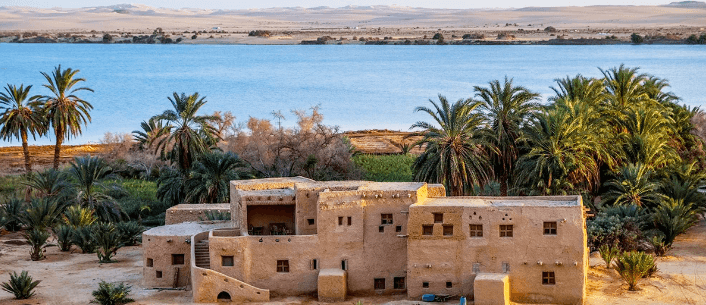
7. The Pace of Life: Embrace the Slow Moments
The pace of life in Egypt can be notably different from what you may be used to back home, and this may take some getting used to for first-time travelers. Egyptians are known for their laid-back attitudes and relaxed approach to time, which can sometimes feel frustrating for visitors used to the more efficient pace of Western life. However, this slower pace is a core aspect of the culture, and it’s essential to embrace it as part of the experience.
What to Expect: You may find that things don’t always run on time in Egypt. Trains and buses might not always leave on schedule, and some shops or businesses may open late or close earlier than expected. Likewise, queues in shops or restaurants may not always follow the strict orderliness you might be accustomed to. It’s also not uncommon for people to take long breaks or enjoy extended social time, especially in cafes, where conversations over tea or coffee can last for hours.
In many parts of Egypt, life is centered around relationships and spending time with family and friends. The idea of hurry or efficiency isn’t as crucial as in other countries, so it’s important to approach the slower pace with an open mind and sense of patience. This laid-back lifestyle is part of what makes Egypt so charming—it’s a reminder to slow down and enjoy the moment, whether you’re savoring a meal, taking in the sights, or simply conversing with a local.
Travel Tip: Don’t rush or stress out over the time—it’s all part of the experience! If you find yourself waiting for a while, take it as an opportunity to observe and enjoy the surroundings, chat with the locals, or try some traditional Egyptian snacks like baladi bread or baklava.

8. Public Transportation: Navigating Egypt’s Roads and Streets
Getting around in Egypt can be an adventure in itself. While there are various forms of public transportation available, from taxis to buses and the Cairo Metro, it's important to understand how to navigate these systems efficiently. The streets of Egypt are often bustling, and traffic can be chaotic, especially in cities like Cairo and Alexandria. While public transportation is affordable, it might not always be the most comfortable or efficient option, especially during peak hours.
What to Expect: In Cairo, the Cairo Metro is one of the most efficient and affordable ways to get around the city. It’s modern, relatively easy to navigate, and offers air-conditioned cars—a welcome relief during the hot Egyptian summer. However, the metro can be crowded, especially during rush hour, and the trains can be quite old, so be prepared for a less-than-perfect experience. If you choose to take a bus, they are generally cheap but can be overcrowded and not always air-conditioned. If you’re in a hurry, taxis and ride-hailing services like Uber and Careem are widely available in major cities.
Egyptian taxis are an iconic part of the transport system, but it’s important to ensure the driver uses the meter or agree on a price before the ride. If you’re traveling in a smaller city or rural area, consider hiring a private driver for convenience and comfort.
What to Expect: When traveling by car, be prepared for driving styles that may seem chaotic by Western standards. Roads can be congested, and traffic laws may not be strictly followed. Pedestrians are not always given priority, and honking is often used as a form of communication on the roads.
Travel Tip: Always negotiate the price of a taxi ride before getting into the vehicle, and be prepared to use a ride-hailing app like Uber or Careem, which can help avoid misunderstandings with pricing.
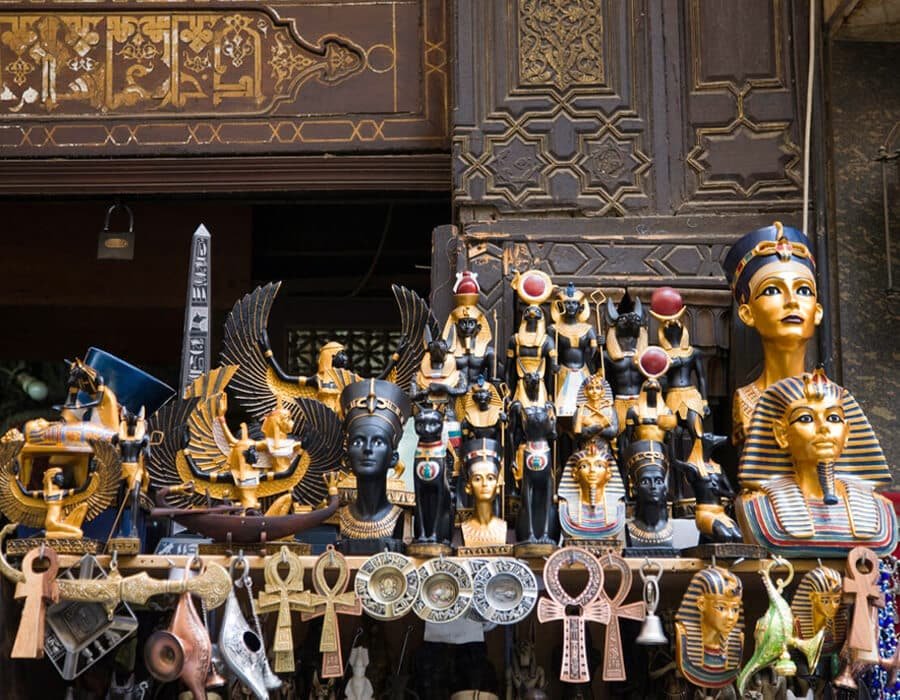
9. Shopping for Souvenirs: What to Buy and Where to Find It
No trip to Egypt is complete without taking home a few souvenirs to remind you of the incredible sights, sounds, and experiences. Egyptian markets, known as souks, are filled with an array of goods—from intricate jewelry to vibrant textiles, spices, and handmade pottery. The challenge for many first-time travelers is knowing what to buy and where to find the best items.
What to Expect: Some of the most popular souvenirs from Egypt include papyrus paintings, scarabs, Egyptian cotton products, and spices. If you’re looking for something truly unique, handcrafted jewelry featuring ancient Egyptian designs or Alabaster carvings makes for a beautiful and meaningful gift. You’ll also find lots of antique shops and local vendors offering reproductions of famous Egyptian artifacts, such as busts of pharaohs and miniature pyramids.
One of the best places to shop for souvenirs is Khan El Khalili Bazaar in Cairo, a famous market known for its endless stalls selling everything from gold jewelry to fragrant oils and handcrafted textiles. Bargaining is a common practice here, so don’t hesitate to negotiate prices. Keep in mind that the prices may initially be higher for tourists, but with some polite haggling, you can secure a better deal.
If you’re interested in high-quality Egyptian cotton, head to stores selling luxury linens, such as sheets, towels, and clothing, which are some of the finest in the world. For more unique treasures, you can visit local artisan workshops in places like Luxor or Aswan, where you’ll find handmade pottery, woven carpets, and other crafts that showcase the region’s cultural heritage.
Travel Tip: When shopping in souks, always start by offering a lower price than what is quoted. Don’t be afraid to walk away if you feel the price is too high; many shopkeepers will lower their prices to keep you from leaving.


